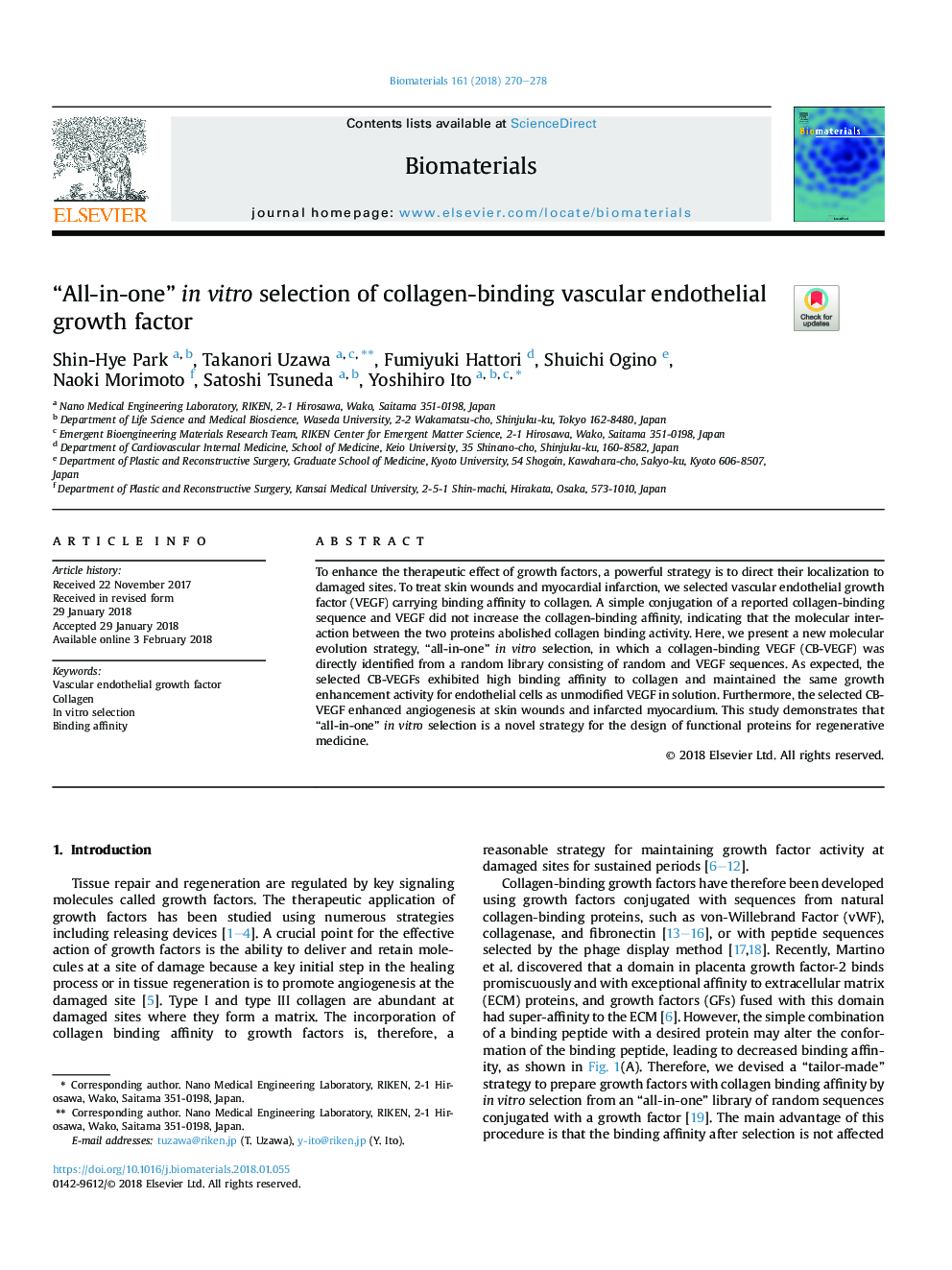| Article ID | Journal | Published Year | Pages | File Type |
|---|---|---|---|---|
| 6484634 | Biomaterials | 2018 | 9 Pages |
Abstract
To enhance the therapeutic effect of growth factors, a powerful strategy is to direct their localization to damaged sites. To treat skin wounds and myocardial infarction, we selected vascular endothelial growth factor (VEGF) carrying binding affinity to collagen. A simple conjugation of a reported collagen-binding sequence and VEGF did not increase the collagen-binding affinity, indicating that the molecular interaction between the two proteins abolished collagen binding activity. Here, we present a new molecular evolution strategy, “all-in-one” in vitro selection, in which a collagen-binding VEGF (CB-VEGF) was directly identified from a random library consisting of random and VEGF sequences. As expected, the selected CB-VEGFs exhibited high binding affinity to collagen and maintained the same growth enhancement activity for endothelial cells as unmodified VEGF in solution. Furthermore, the selected CB-VEGF enhanced angiogenesis at skin wounds and infarcted myocardium. This study demonstrates that “all-in-one” in vitro selection is a novel strategy for the design of functional proteins for regenerative medicine.
Related Topics
Physical Sciences and Engineering
Chemical Engineering
Bioengineering
Authors
Shin-Hye Park, Takanori Uzawa, Fumiyuki Hattori, Shuichi Ogino, Naoki Morimoto, Satoshi Tsuneda, Yoshihiro Ito,
